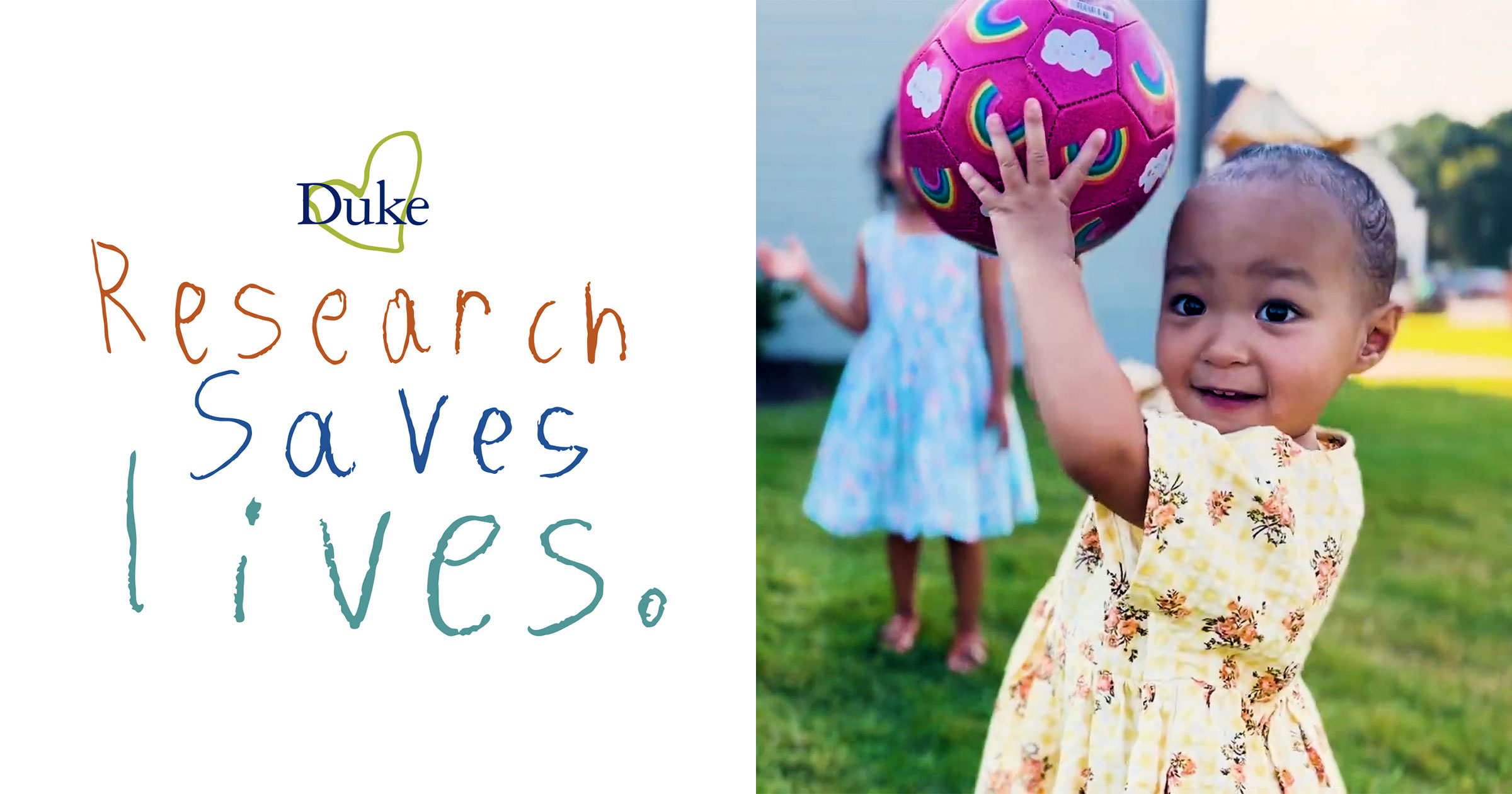Mary Beth Humphrey finds it perfectly normal to be an Episcopal priest with a Ph.D. in chemistry.
"Science and faith are all about finding the truth," says the 68-year-old, her purple-tinted silver hair blowing in the breeze.
Duke Dr. Heather Whitson is also on a quest for truth. The professor of neuroscience, neurology and medicine is searching for treatments that could ultimately save the lives of Humphrey and thousands of others who are at risk for or have Alzheimer's disease.
Whitson co-directs the Duke & UNC Alzheimer's Disease Research Center , a collaboration of investigators from Duke and the University of North Carolina at Chapel Hill who search for a treatment by tracking Alzheimer's patients and people with genetic risks for the disease.
On a recent afternoon, Whitson and Humphrey met in a courtyard by the Duke Medicine Pavilion, sharing family photos and talking about their hope for Alzheimer's research. The pair discovered they share similar backgrounds: Humphrey, an Alabama native, lost her mother and three aunts on her mother's side to Alzheimer's. Whitson, from Arkansas, lost her grandmother to the disease.

"As I've gotten older, I've paid attention to lapses," Humphrey says. "I went to the neurologist and had a workup done." The tests showed she has two genes that greatly increase her chance for getting Alzheimer's. She now receives monthly treatments at the center.
"I know then that I have passed one of those (genes) on to my children," Humphrey says. "So, I want to be the bridge between a generation that had no help, no medicine, no treatment, and to another generation in which there may be at least some kind of treatment, because it's not going to go away."
The Alzheimer's Association estimates that 7 million Americans age 65 or older had Alzheimer's last year. Nearly two thirds of them were women.
"I think both as a researcher and as a taxpayer, efficiency in research is really important to me. I want to see that return on investment. I want the cures to come as quickly as they possibly can. I also realize, though, that science is not always a fast endeavor. Sometimes the best science … is not necessarily the fastest."
Dr. Heather Whitson
Whitson says experiencing her grandmother's decline while training to become a clinician inspired her research path.
"I think the thing that I didn't realize when she first got diagnosed that I know now, is that those changes in her brain had been happening for years to decades before we noticed the memory problems.
"And that really inspired me, that there were huge untapped opportunities to prevent and hopefully cure this disease by starting way earlier."
At the Duke-UNC center, Whitson and other researchers conduct tests before participants get sick so they can monitor changes that may have led to Alzheimer's and other cognitive diseases.

A major portion of the center's funding comes from the National Institutes of Health, as is the case at more than 30 similar Alzheimer's research centers across the country. Multiple locations provide more people with access to treatments and allow researchers to collect data throughout the network and expand the potential for a cure.
Cutting public funding would seriously harm that research, Whitson says.
"If we think about biomedical research as a patient, I think we all agree that it's important to keep that patient as healthy as we possibly can," Whitson says. "We want to get to those answers truthfully and efficiently and as quickly as possible.
"What I worry is that if we approach the treatment in a way that is too hasty or we make cuts that are too deep, that we can actually do damage to the patient rather than trying to treat the problem."

Competition for NIH funding is intense, she says, noting that researchers vying for NIH funding in her area of research must apply every five years, demonstrate they have the proper infrastructure (including specialized freezers for donated brains) and that their findings are moving closer to a cure or prevention.
The stringent requirements for federal dollars are why many of the 900-plus page applications are not funded, she says.
"I think both as a researcher and as a taxpayer, efficiency in research is really important to me," Whitson says. "I want to see that return on investment. I want the cures to come as quickly as they possibly can. I also realize, though, that science is not always a fast endeavor. Sometimes the best science … is not necessarily the fastest.
"I think in a study like ours, we've already put much investment into recruiting, enrolling, following people. And to make the best return on that investment that those humans have committed (to and) have contributed their time, their energy, their samples to, we really have the potential of losing that investment if we pause or halt the funding."
That thought scares Humphrey.
"I think my biggest grief will be, my mother forgot how to read, and I've been reading since I was 3," she says, her voice shaking. "I don't want to lose that."






